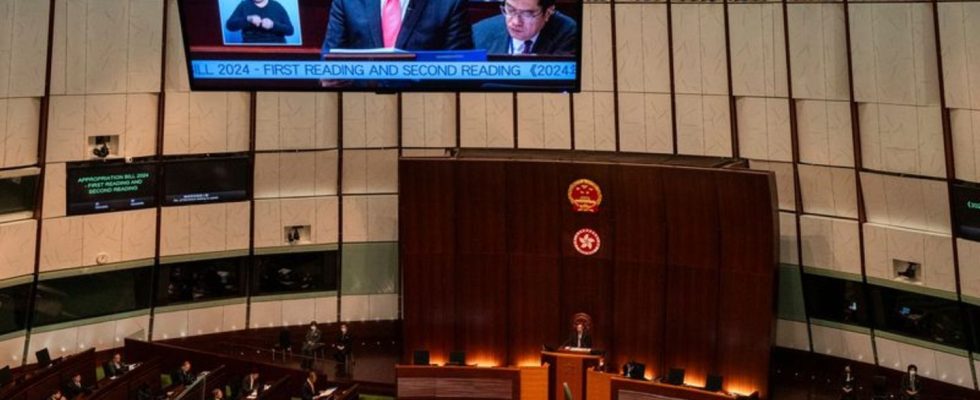democracy
Hong Kong’s controversial security law comes into force
Hong Kong’s Finance Minister Paul Chan delivers the annual budget speech at the Legislative Council in Hong Kong. The Legislative Council passed the new and controversial security law in China’s Special Administrative Region. photo
© Louise Delmotte/AP/dpa
Despite international criticism, the security law in the financial metropolis of Hong Kong is now legally binding. This gives the authorities further powers to take action against critical voices.
On Tuesday, Hong Kong’s Legislative Council unanimously passed a corresponding bill. As a result of the mass protests for more democracy more than four years ago, the security law in Hong Kong tightened sentences and gave the police more power to investigate or arrest suspects in certain cases.
Cameron: Disregarding commitments
The law was met with sharp criticism internationally. The European foreign policy chief Josep Borrell criticized that it could “exacerbate the erosion of fundamental freedoms and political pluralism.” British Foreign Secretary David Cameron said the new law undermines the fulfillment of binding obligations under international law such as the 1997 Joint Declaration between Britain and China on the return of the Crown Colony and the UN Convention on Civil and Political Rights. The Chinese government rejected the criticism.
Since July 1, 1997, the former British crown colony has been part of China again and is governed according to the principle of “one country, two systems”. This agreement actually stipulates that Hong Kongers will enjoy “a high degree of autonomy” and many freedoms for 50 years until 2047.

